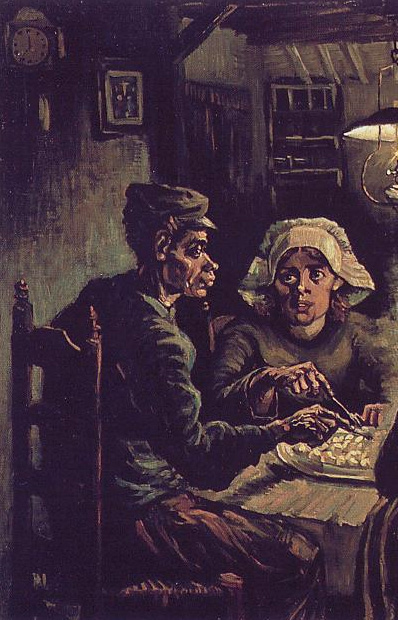13th June 1943, evening
The French painters—The great artistic achievements of the nineteenth century were German—Architecture in Munich.
I cannot make up my mind to buy a picture by a French painter, because I am not sure of the dividing line between what I understand and what I do not understand. I have the same feeling when I look at paintings by Corinth and Trübner—to mention only two of our German artists. These men started by painting pictures of great merit, and then, urged on by pride, they started to produce the most startling and extraordinary works. In literature the Jew has already blazed the same pernicious trail, and artists like Corinth and Trübner have followed them. The result is the frightful daubs with which they now inflict us.
In painting, the Italians were truly great from the fourteenth century to the seventeenth; in the eighteenth century they rested on their laurels, in the nineteenth their light began to wane, and today Italian art is completely degenerate. All this seems quite incomprehensible to me, but I suppose it is the law of averages. In the nineteenth century the greatest masterpieces in every branch were the works of us Germans. In the same period the French, too, had some good artists, but they all deteriorated in time.
When I think of the Paris Opera House, I cannot help feeling that those of Dresden and Vienna are in a very different category. The design itself of the Paris Opera is a work of genius, but the execution, from the artistic point of view, is very ordinary; and the interior is pretentious, overcrowded with decoration and devoid of all artistic taste. We must make sure that the new Opera House which we intend to build in Munich surpasses everything, in every way, that has ever gone before it.
The Palace of Justice in Munich is perhaps the most beautiful example of the baroque of recent times. Typical of the epoch of liberalism is the Palais de Justice in Brussels. It is a cyclops which dominates the whole town; and fancy having the Law Courts, of all things, as the dominating feature of a place! I am quite sure that a man is never more ready to fight for his country than when it is a question of defending the artistic and intellectual heritage of the nation. We have a fresh proof of it today. The destruction of a national monument has a greater effect on public opinion than the destruction of a factory.
_____________________________
Consider obtaining a copy of the complete notes
published by Ostara Publications.

